Premium Only Content
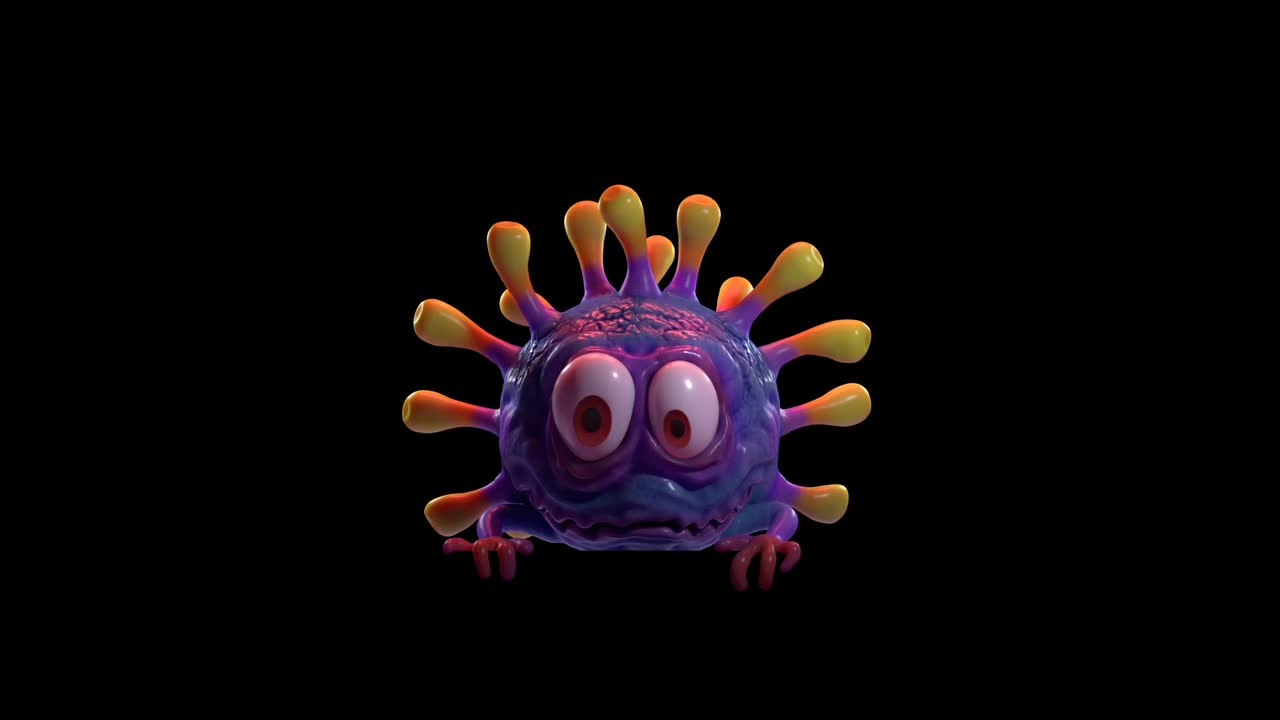
Vaccines stop COVID-19 symptoms, but do they stop transmission?
A sincere welcome If fan what we do, subscribe click the bell and join us . Welcome!
Researchers mull options, including college dorm studies and 'human challenge' trials, to find answer
As Americans celebrate the rollout of the first COVID-19 vaccines, scientists are racing to find out whether these new shots not only protect individuals from disease, but also prevent them from transmitting the coronavirus to others.
It turns out that vaccine protection is more complicated than it seems. Are the new vaccines merely “symptom-reducing” — keeping those who receive it safe from getting ill but not necessarily preventing them from infecting other people — or can they truly block transmission of the virus, which is often spread by infected people who show no signs of sickness?
“You’d rather have a vaccine that completely blocks infection rather than preventing symptoms,” said Dr. Joshua Schiffer, an infectious disease researcher at Fred Hutchinson Cancer Research Center. “It could save the lives of many people who have yet to get the vaccine, by protecting them indirectly.”
Yet here is the problem: The giant, successful studies that determined that both the Moderna and Pfizer vaccines were an astonishing 90%-95% effective in preventing disease cannot completely answer the question of how they worked. The trials’ designs only allow an imperfect estimate of whether the vaccines block infection or just symptoms. Until now, that question was less urgent than finding out if they worked at all.
Two research proposals to solve transmissibility puzzle
It is a question that is now so important to the rollout of vaccines that Schiffer and key vaccine experts involved in the trials are considering different approaches to provide rapid answers.
One option is human challenge studies — in which about 100 paid volunteers are deliberately exposed to the coronavirus. In a paper posted on Dec. 14 on the preprint server MedRxiv, Schiffer and his colleagues discuss how measuring levels of virus among participants in such studies might provide the information they need. Preprints are not peer-reviewed prior to publication but serve as a quick way to present new research for public critique by other scientists.
The team’s proposed study would go like this: In the controlled environment of a human challenge trial, about 50 young adult volunteers would receive a vaccine, and the same number would get a placebo. Then, all the participants would be deliberately infected with a strain of the COVID-19 virus. Only young volunteers would be recruited for the study, because they are most likely to come down with just a mild case of COVID-19.
Isolated in a safe location for two weeks, participants would get regular swabs for a test that not only detects virus but can measure how much of it — the viral load — is in their specimens. The higher the viral load, the more likely a person is likely to transmit the virus to others.
If the scientists find the vaccinated group is shedding no or very little virus compared to the placebo group, it will be strong evidence that the vaccine not only stops disease, it prevents or reduces the chances the recipient would be contagious.
“While I do think that a human challenge study would provide the answer, the ethics of this approach are complex and require significant debate among experts in the field,” said Schiffer.
-
 0:47
0:47
WXYZ
4 years agoCOVID-19 Vaccines and Children
3.15K8 -
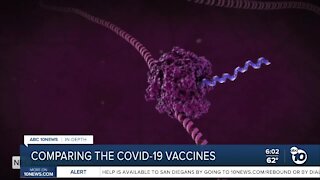 3:32
3:32
KGTV
4 years agoComparing the COVID-19 vaccines
1.66K3 -
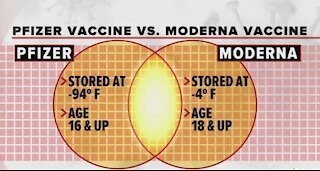 2:32
2:32
KTNV
4 years agoCOVID-19 vaccines: Pfizer vs. Moderna
3.02K10 -
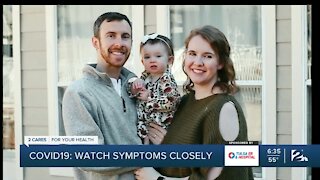 2:40
2:40
KJRH
4 years agoCOVID-19: Watch symptoms closely
7101 -
 1:45
1:45
WFTS
4 years agoFlorida to get COVID-19 vaccines
8813 -
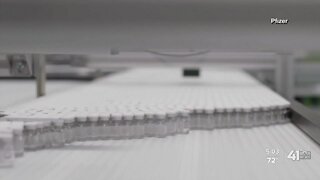 2:39
2:39
KSHB
4 years agoHospitals prepare for COVID-19 vaccines
4772 -
 2:26
2:26
KJRH
4 years agoCOVID-19 vaccines expected to arrive soon
168 -
 1:41
1:41
KJRH
4 years agoCOVID-19 vaccines expected to arrive soon
177 -
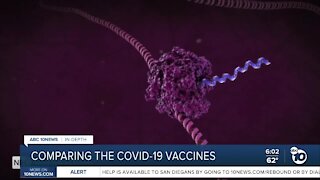 3:32
3:32
KGTV
4 years agoComparing the COVID-19 vaccines
80 -
 0:26
0:26
Newsy
4 years agoU.K. Stocking Up On COVID-19 Vaccines
9851